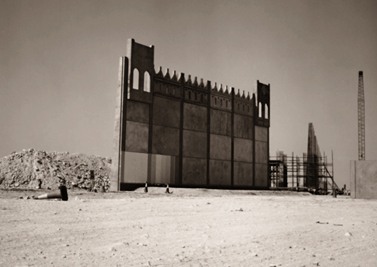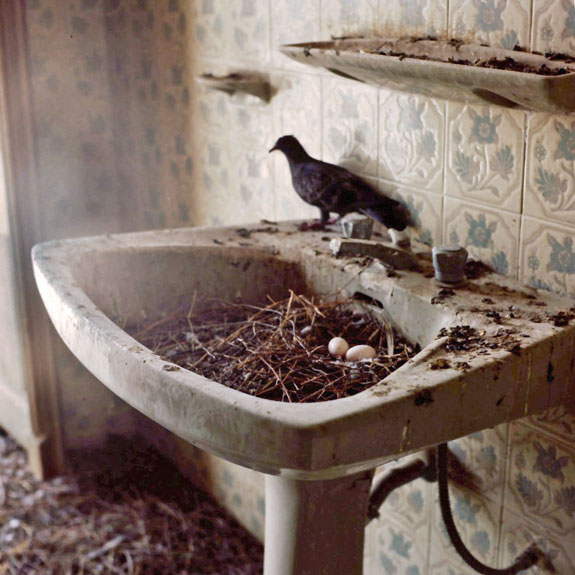
The Cities of Animals
City of Birds
In Qatar, the birds have built their own hidden city. They live in the towers and stairwells of an abandoned palace. Their feathers carpet the ground. They build nests in the sinks of the empty bathrooms. Leave their clean, thin bones in the white sand of the courtyard. They say djinn live there, but this isn’t true. There is no room for djinn in that papery dusk of a thousand sleeping wings. The call to prayer wakes them, sends them winging aloft. I once stood in the wind of their passing. The blink of shadow and light.
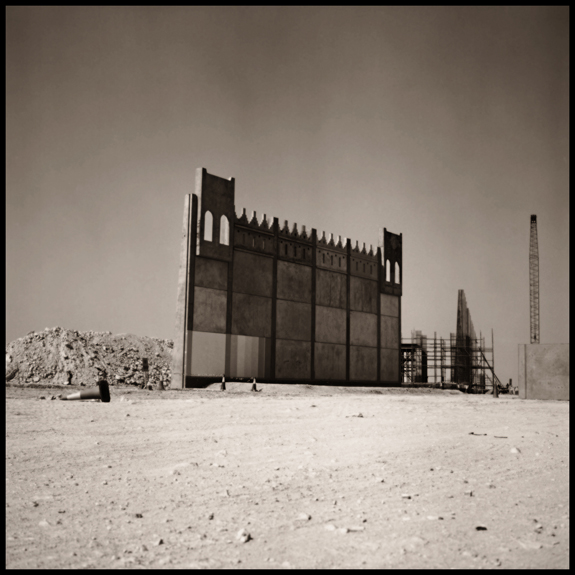
City of Dogs
But where the dogs live, I haven’t found. I’ve seen them ghosting into the haze of the industrial area, starved shadows slipping behind the rubble hills. They appear sometimes with terrible injuries: a stump of a leg, the bone still protruding. A half severed tail. The skin of their neck loosened by wire collars, the flesh beneath a slick, red necklace. This is the rumor I’ve heard. They meet in their own underground majlis, beneath the tall factories on the edge of the sea. There they howl wild poems and stage magnificent battles to please their king, who is no dog but a fierce and beautiful wolf. In fact, all dogs transform below the earth. On the surface, they appear emaciated and cringing, but don’t believe it. Beneath the skin, all dogs are wolves.
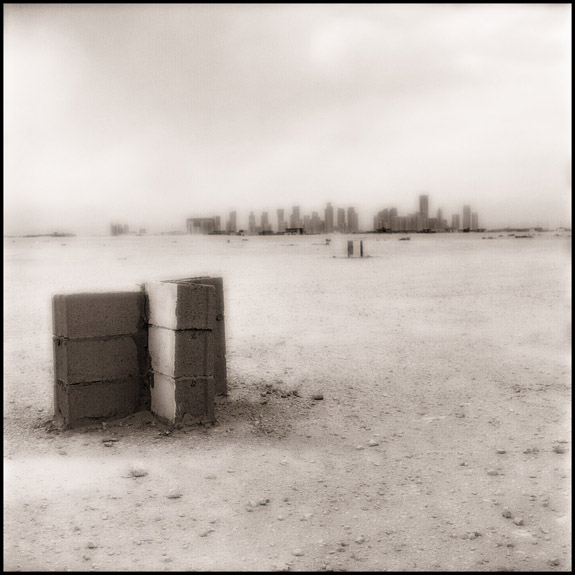
City of Cats
The cats, however, have lost their way. Once upon a time, their ancestors relinquished their castles, their exotic conquered territories. They have forgotten their true names, and even their language is lost to them. They’ve fallen into darkness and barbarism. See the tom with his face ripped off, slinking beneath the pipes in the basement. See the mother with her spine like a row of knuckles, trying to nurse dead kittens that have curled like leaves in the heat. Theirs is the palace of dumpster. Theirs is the kingdom of asphalt. This is why they fling themselves into traffic and embrace the street with their guts.
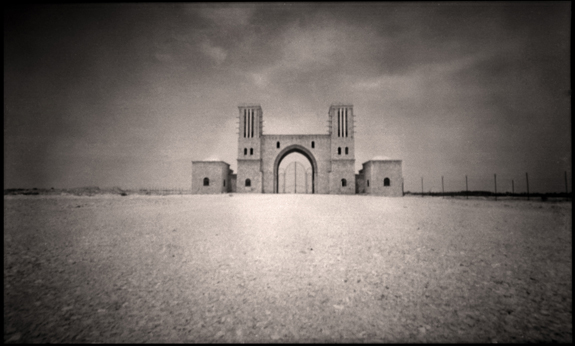
City of Horses
They say there is a herd of invisible horses that live in the emptiest part of the desert, where the dunes are pure and untracked. You can’t find them if you go looking (they say) but if your heart is clean and you sit on the sand and wait quietly, having fasted on nothing but milk, in time you may feel their warm breath on the back of your scalp. I’ve heard that only pregnant women draw them, or children who have been abused. The horses carry no harm. Their hearts are large and kind. Of all the animals, the horses are the last to remember what we could have been, and they grieve for us still.
Husband Stories
The Deported Husband
You live in one country. Your husband–another. You can’t enter his. He can’t enter yours. You can leave your country, but he can’t leave his.
Insert visa. Insert error. Insert documents in a language you can’t read. Insert Embassy, closed. Insert phone, unanswered. Insert cancelled ticket. Insert joke (if applicable).
Now insert context. Insert this story: a woman, a housemaid, another foreigner inserted into your husband’s involuntary country. Insert the twenty-four needles inserted by her employer into her body. Insert all the ways to be foreign.
Now insert all the ways to be foreign inside your own marriage. Insert empty house. Insert empty bed, waking up to (insert appropriate emotion here) and the hum of construction inserting itself into your ear, as a background, as a thing once formerly ignored, a remote fact, like the housemaid and the needles, of other violence being inserted, below your window into the land, your nation into another, of what it was and what it aches to be, and what it displaced in the insertion of. Like your marriage. Like a needle. Like your husband’s foreign, painful country.
The Missing Husband
But at least be comforted by this thought: a city of a million missing husbands, a million missing wives. Imagine their absence stacked in the labor camps, between the narrow bunks; crouched in the dark solitude of a city of silent maid’s quarters. Here is a population of the unseen. Here are the throngs of wanting. In that clamor, your missing husband becomes silenced. Your yearning irrelevant. His absence disappears.
The Invented Husband
And if that doesn’t work, make loneliness a companion. Shape it into the shape of him, the invisible him, the fictive version. Make him vast when you’re sitting at the window of your city apartment–make him expand to the dust hazed sky, to the street fifteen stories down. Make him transparent so everything you see is shaped and colored by him. Make him tiny. Cup him in the aching hollow of your throat while sleeping. Find him in the empty refrigerator, in the water draining from the sink. Don’t think about time. Don’t think about the before, the what was, or the could have been. Don’t think. Shape him from the steam in the shower, in the rumpled sheets. A depression of him. A hollow to fill, to listen for, to transcribe, to write the blank of. Here is your husband. Here he is. Right here.
